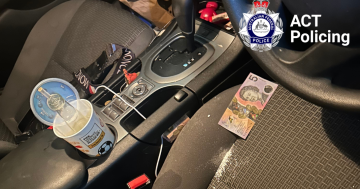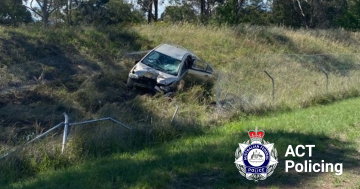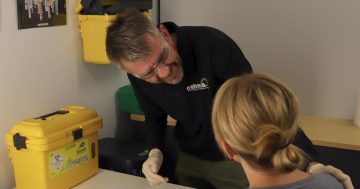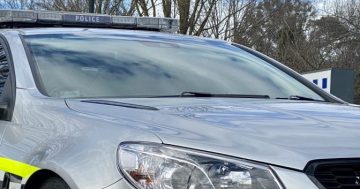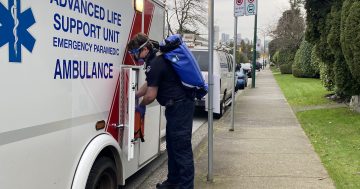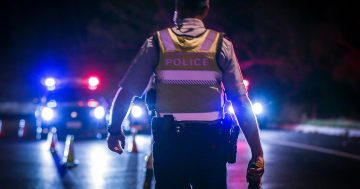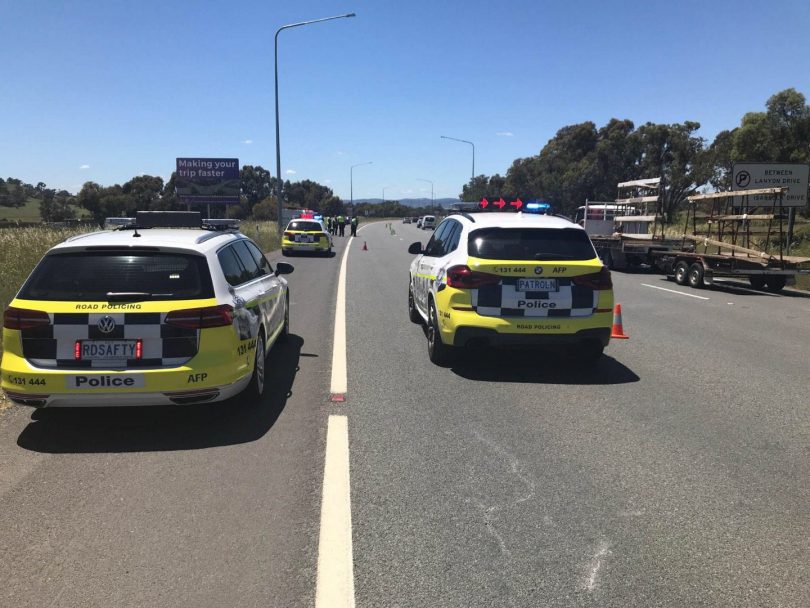
Drugs and driving are “wicked problems” that no jurisdiction has yet solved. Photo: ACT Policing.
After a horror year on the Territory’s roads, data from ACT Policing has revealed a high percentage of drivers involved in fatal accidents had drugs in their system.
Of the drivers who could be tested, 70 per cent had cannabis in their system while 50 per cent had both cannabis and alcohol or methamphetamine (also referred to as methylamphetamine).
When taking into account those who were not tested, just under 50 per cent of all drivers had drugs detected.
Police data provided in response to a question on notice taken as part of the ACT Legislative Assembly inquiry into dangerous driving confirmed 15 separate fatal crashes in the year to November resulting in 18 deaths.
Police have so far been able to run toxicity tests on 10 of the 15 drivers involved in these incidents, including those who died.
Seven of these had marijuana in their system and five had not only marijuana but also methamphetamine or alcohol as well.
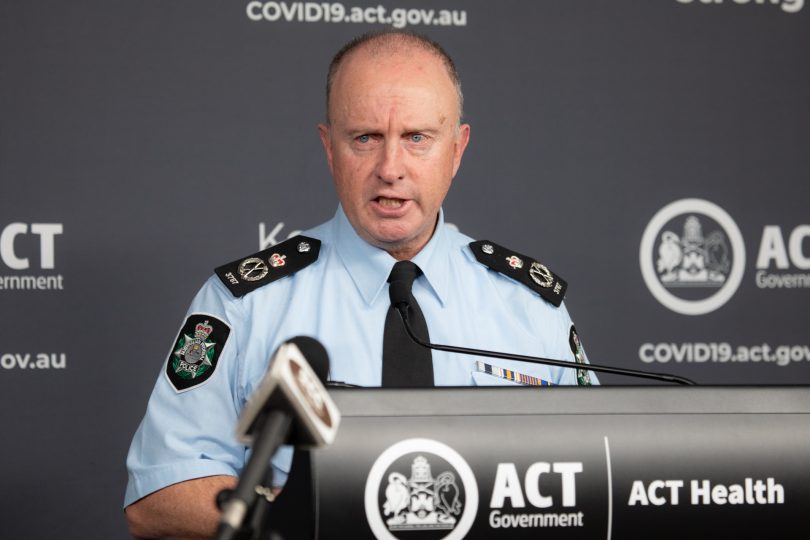
Chief Police Officer Neil Gaughan has urged Canberrans to drive responsibly. Photo: Michelle Kroll.
While police have publicly confirmed they believe alcohol and/or drugs played a role in most crashes, this has yet to be confirmed by coronial inquiries in most cases.
Police have previously stated their concern that drug decriminalisation could lead to community perception that driving under the influence of drugs is acceptable.
ACT Policing Operations Commander Linda Champion said it was frustrating for police when people “blatantly disregarded” road rules and road safety and drove under the influence of drugs.
“While there are legislative changes pending regarding the possession of small amounts of certain drugs, it remains illegal to drive a motor vehicle with any illicit substances in your system,” she said.
“Importantly – the presence of illicit drugs, including cannabis, methylamphetamine and cocaine in any driver’s blood or saliva remains an offence.
“We know there are road users who believe they can take medicinal or recreational cannabis and then later drive a vehicle. This is not the case. For as long as the substance is in your system, it is an offence to drive.”
In the last three financial years, the number of fatalities that involved a driver with cannabis or other drugs in their system has increased from three in 2019-20 to four in 2020-21 and eight in 2021-22.
Laws that decriminalised small amounts of cannabis came into effect in the Territory in 2020. A further swathe of drug decriminalisation laws for substances like ice, meth and cocaine will come into effect next year.
Labor backbencher Michael Pettersson has been behind the drug decriminalisation push.
He described the issues relating to drugs and driving as “wicked problems”.
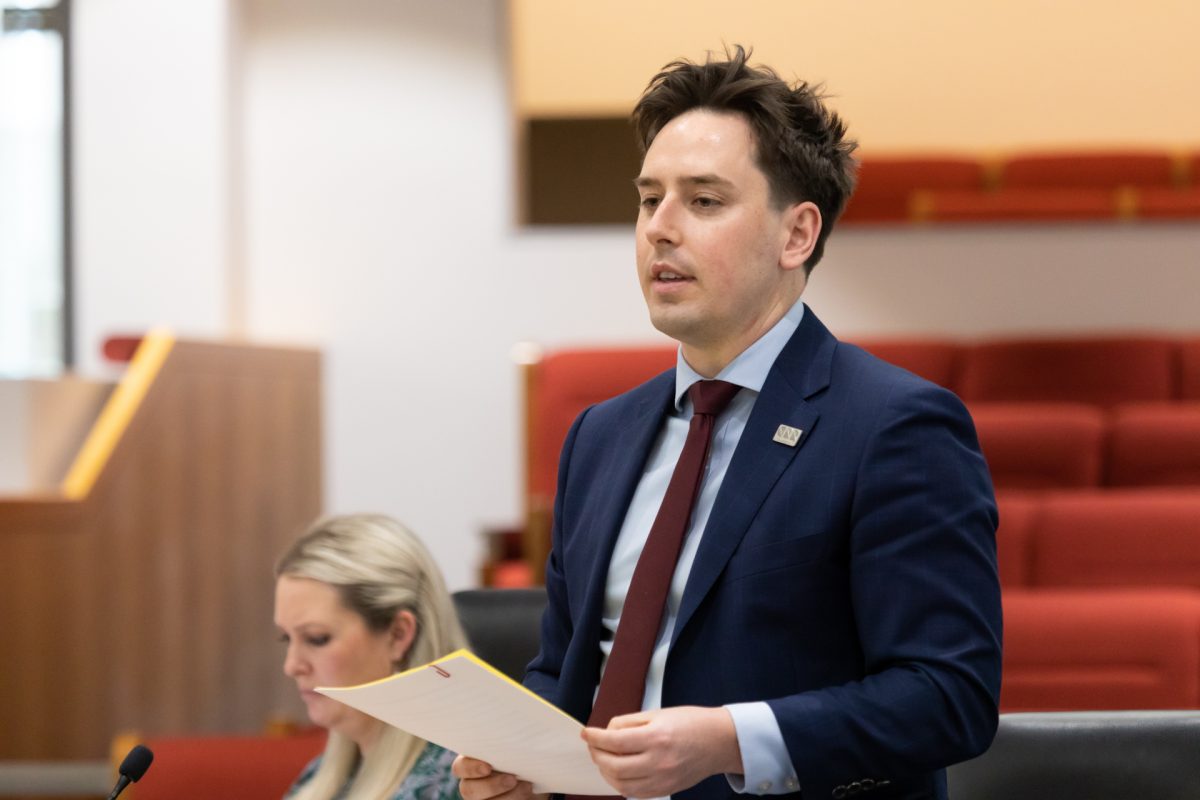
Labor backbencher Michael Pettersson introduced both sets of drug decriminalisation laws to the ACT Legislative Assembly. Photo: Michelle Kroll.
Mr Pettersson stressed that driving under the influence was entirely different from possessing small amounts of drugs and that driving while affected by any substance was “remarkably dangerous”.
“The response from the state needs to be [criminal sanctions] for drug driving … it’s the only response to take,” Mr Pettersson told Region.
“For a person caught possessing the substance not behind a wheel, the response needs to be a health-based one to reduce the harms they may potentially cause to others.”
But Mr Pettersson described these issues as “wicked problems” which neither he nor technology had the answer for yet.
“I’m very sympathetic to the argument that someone was not impaired on the road, but they had the presence of these substances in their system,” he said.
“It’s a terrible situation, but in keeping our roads safe, we have to be overly punitive.”
He said some of the complexity of drug testing and impairment was that each substance had different effects.
“To use cannabis as an example, we know that remains in drivers’ systems for a very long time, long after you’re impaired,” he said.
“Our drug detection system relies on detection, not impairment. There is potentially a very real issue there because people on our roads could face serious drug charges if they are not actually impaired.
“But for other substances, like cocaine, there’s a higher likelihood that if drug tests can detect it, you’re impaired by it.”
A spokesperson for the ACT Government said the ACT has a zero-tolerance approach to drug driving which means a driver cannot have any amount of a drug in their system at any time.
This is unlike the approach taken to alcohol where there is a prescribed acceptable limit.
This is despite the fact sometimes drivers have had drugs detected in their system when they have not consumed the substance for a number of days.
No technological developments have yet been able to establish a causal link between specific levels of drugs and impairment, which can be applied across the population, the ACT Government spokesperson said.
The government would continue to monitor this space, the spokesperson confirmed.












